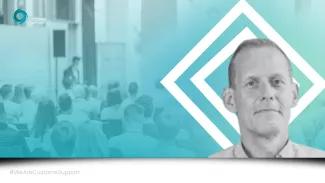In this edition, we are excited to present Regional Manager Ghent Hans Jodlowski, who works with our Belgian branches to provide a uniform service in the region.
Who are you?
My name is Hans Jodlowski and I joined the Custom Support almost two years ago. I'm 54 years old, have two children of 14 and 17, and have been into sports my whole life – Athletics and volleyball in my younger years although I am more of a cyclist now I am a bit older.
My role here is the regional manager for the Ghent area.
What does a regional manager for Ghent do?
We have two offices working together in the Ghent region, which were separate acquisitions, and it’s my role to oversee them and ensure that they have the same structure, workflows, and procedures so that there is a uniform service from Customs Support in the area.
I am also the senior point of contact for many of our customers that have been working with the branches since before the acquisitions. It’s important for our customers to feel looked after now that they are working with a different brand, even though the offices and personnel are mostly the same. If they have any concerns, they have direct access to me.
What does your typical working day look like?
Currently, most of my focus is on communication with our customers. I prefer to meet them physically, but the majority of our conversations are still online.
I also monitor my inbox for any issues that may arise, and have keyword automation ready to highlight anything that’s urgent. With customs clearance, it’s essential for us to resolve any problems quickly, and prevent any repeated issues with a process change or training.
It’s very important for me to stay connected with my teams and ensure they are happy, that workload is fair, and that the trust is there for us to report issues and have open conversations.
What do you like most about your job?
The diversity. It’s important for us to have a mixture of skill sets and perspectives in this role. Customs is a large industry and it’s impossible to know it all, so we need that diversity in the team for us to provide a full service to our customers.
What do you like about being part of a network of customs experts?
Adding to my point about diversity, it’s great that we have such a large team of experts to call on. I haven’t always worked in customs, so sometimes I need that support from my colleagues to match an idea to a reality of how we will make it happen.
The teamwork across the group is essential, and it is very nice to be part of a team of experts who are always ready to assist.
What was your career before customs?
When I graduated, I joined the military for my one-year conscription – which is not obligatory anymore. After that, I began working on a tank terminal – handling chemicals, oils, and other liquids in trucks, rail cars, vessels, drums, and IBCs (Intermediate Bulk Containers).
The company was quite young when I began working with them – only about four or five years old. I was there for more than 25 years, in which time it grew to a huge tank terminal and a market leader for the area.
What attracted you to Customs Support after 25 years at your former company?
I was at that stage in my career where I had the decision to make. Either I could continue working with the company I had dedicated a lot of my life to, or I could try something different whilst I still have a good amount of time left for my career.
Initially, I went to a warehousing provider but I decided not to sit wasn’t for me. Whilst searching for a new opportunity, I came by this role at customs support. I hesitated at first because I have interacted with customs but never completed import or export clearance declarations.
I do know the overview and the flows, though, and I also knew that Customs Support are growing very quickly. I liked the process of growing my old company and knew that my expertise would be valued here, so I decided it would be a fun and challenging career path.
What do you do when you're not a work and how does your outside life influence your work skills?
I am quite a busy guy outside of work. I love being outdoors, and at home you can find me often in my garden.
At the weekend, I like walking with my wife or cycling with my children. We tour to small villages – riding 40 kilometres or so to get a good coffee or pancake somewhere.
That family time is very important to me and keeps me energised. You need to have a good balance between rest and work days.
Cycling holidays are also a favourite of mine. We go with some to France or Austria once a year to climb some hills and get some decent views over the course of four or five days. These efforts are relaxing and challenging at the same time, but we are there to enjoy all the beauty that nature has to offer us.
What is the most important thing a client should look for in a customs partner?
I think communication and trust are the most important things. You need to be able to rely on each other both ways. We perform the customs operations, but we also need to be able to come to you for what we need to perform well and then get it.
Part of that is making sure that it is a team effort from both organisations. Things can go wrong, and it’s important for us not to assign blame and point fingers. Resolving the problem quickly and then protecting each other from repeating the issue – these are the priorities.
You work with a Europe-wide network. If you were to visit an office location of Custom Support, which city or country would you want to go to first and why?
The region of Berlin in Germany. I hear it's quite a beautiful city and it's also on our bucket list with a family to go over there for a long weekend.














